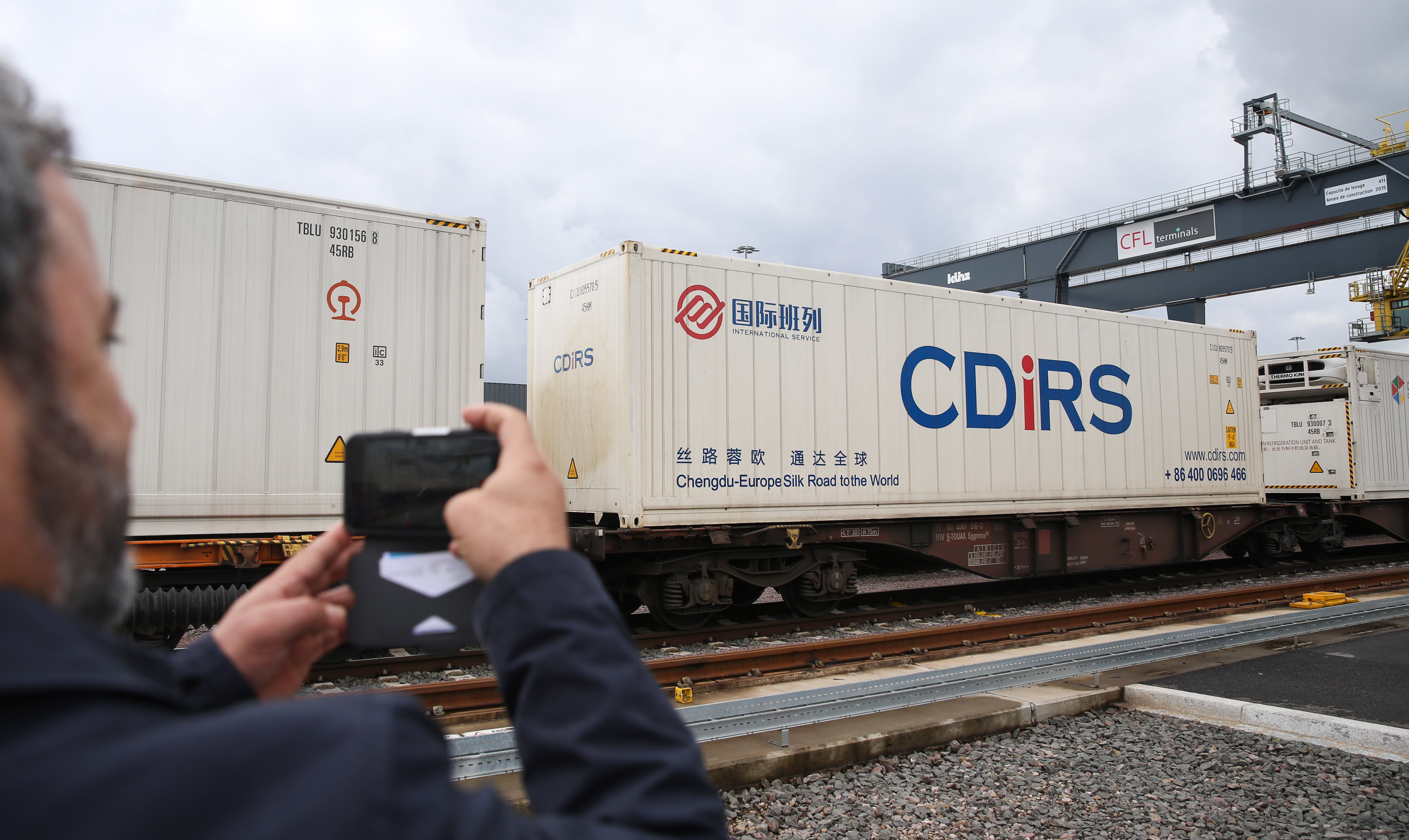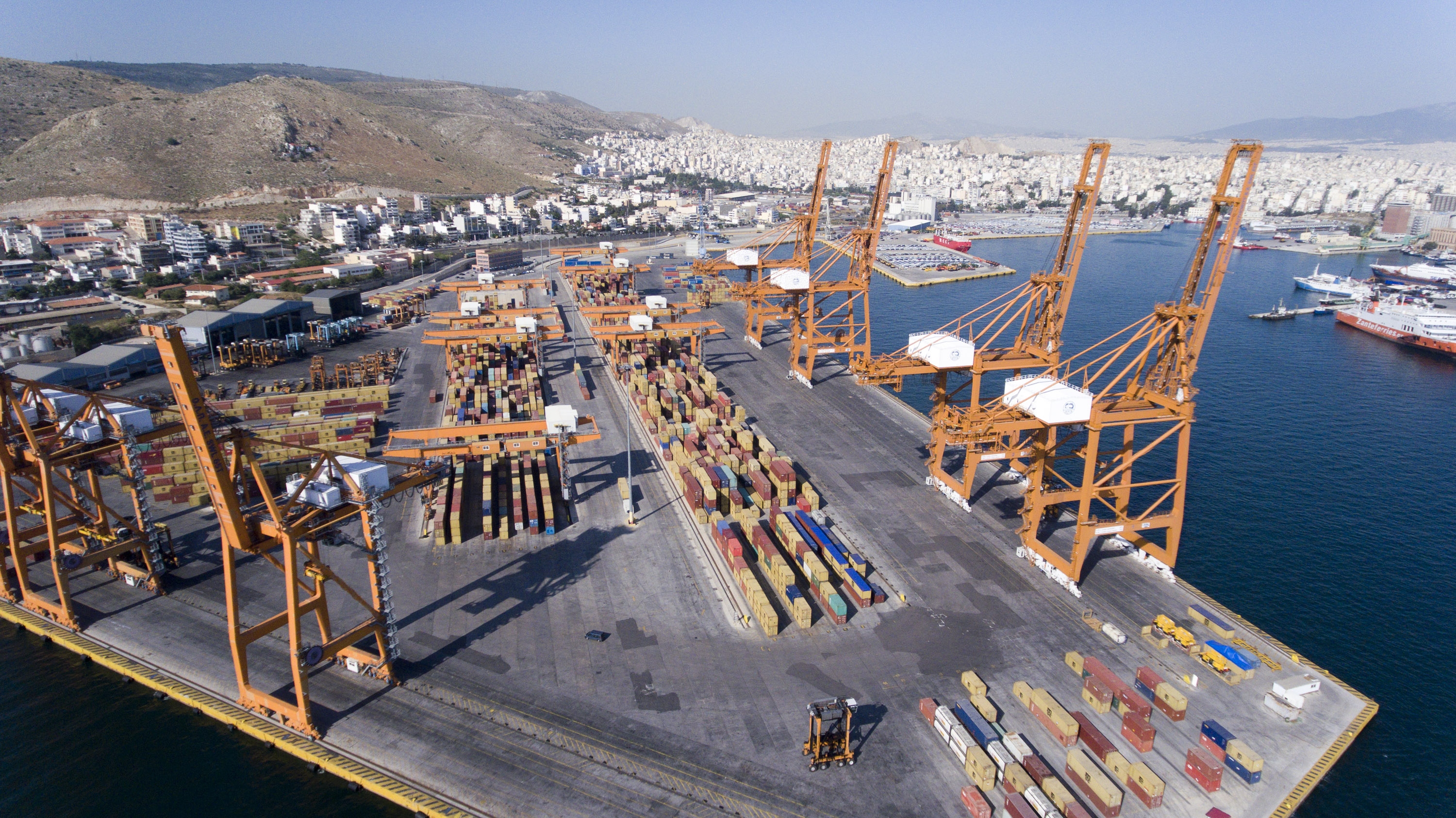The Belt and Road Initiative: A visionary project for the future of humanity
- By Heiko Khoo
 0 Comment(s)
0 Comment(s) Print
Print E-mail China.org.cn, April 22, 2019
E-mail China.org.cn, April 22, 2019

Cooperation, connection and competition are the watchwords most commonly associated with the Belt and Road Initiative (BRI). However, in the context of today's global economic and political environment, the BRI should be seen as a truly visionary series of interconnected plans, which outshine the boldest projects of the leading capitalist states. This is because, in the U.S., Japan and Europe, the pursuit of profit is elevated to the driving force of economic activity, and state involvement is relegated to a supportive role. State-driven investment is frowned upon outside of a few selected fields, most often in the military domain, as the economic role of the state is said to sap away at the entrepreneurial Geist. This profit-seeking "animal spirit" – as the economist John Maynard Keynes called it – is treated as the beating heart of capitalist innovation and creativity, thereby serving the long-term good of humanity. Therefore, the task of capitalist governments is to help profit-seeking companies flourish, and to intervene to ensure that the dominance of narrow private interests does not provoke systemic crises that endanger the system itself.
However, the military, political and economic domains closely intersect, particularly in the USA. As the world's hegemon, it naturally seeks to defend, protect and extend its global interests and power. In 2008, the Great Recession and the subsequent decade of sluggish and anemic growth once again revealed the core vulnerabilities of world capitalism. The conflict between the world division of labor and the interests of the nation state returned to haunt humanity. Ever-increasing global integration began to be challenged as socio-economic problems were blamed on "jobs moving to China" or elsewhere. As world economic growth failed to keep pace with rising expectations and demands, mass migration towards wealthy regions and countries increased. The protection of financial interests led to impossible debt obligations being transformed into government austerity programs. Such measures were imposed by a thousand cuts on the most vulnerable and the poor in a range of diverse states. Perhaps the most dramatic example was Greece.
When Yanis Varoufakis became the Greek finance minister in 2015, the newly elected Greek government and the EU were on a collision course. The EU and the IMF put enormous pressure on the Greek government to make drastic cuts to the state budget, to privatize its state assets and slash spending on public welfare and social services. At the time, a deal to sell the Port of Piraeus to COSCO, a state-owned Chinese company, was already in its final stages. However, when Varoufakis started negotiations with Beijing he was "very pleasantly surprised by the way in which the Chinese authorities managed to combine their sense of self-interest with a patient investment attitude and a genuine commitment to renegotiate and negotiate and discuss again and again and again with us, with a view to achieving a mutually advantageous agreement."

Varoufakis suggested to Chinese negotiators that he would prefer to strike far- reaching plans for cooperation and development between the two countries. This encompassed "railways, technology parks, involving all sorts of activities where our economy needed patient capital, like shipbuilding and shipyards and tourism. We came to a magnificent agreement." Varoufakis added that the Chinese side "showed broadmindedness, and were prepared to accept collective bargaining agreements with trade unions." They were also happy to sequence the deals in ways that were mutually beneficial because China seeks long-term strategic deals that will still be significant in 100 years.
Unfortunately, at that time, Germany vetoed the deal because Berlin was preoccupied with defeating the popular rebellion in Greece. They feared that concessions to Greece might inspire copycat rebellions in other disgruntled EU states. Indeed, had Greece not been treated so atrociously, the Brexit vote would probably not have won a majority in Britain.
President Trump and his allies often blame U.S. economic difficulties on China, and immigration is used to divert attention away from the problems facing the workers and the poor at home. After 2008, as the world economy slowed down, pressures in Sub-Saharan and North Africa, Eastern Europe, and Central and South America produced huge waves of mass migration that became "unmanageable." Migration marches from South America to the North, and rickety boats carrying hundreds of desperate Africans on perilous journeys across the Mediterranean Sea from Libya, have become the face of a global migration crisis. In 2015 an image of the lifeless body of Syrian boy on a Turkish beach who drowned whilst on the crossing to Greece, became etched in Western consciousness. But his corpse represents just one of tens of thousands drowned through economic desperation during recent waves of migration. Most are swallowed up by the sea, where their remains become food for marine life.
Rather than building walls, erecting barriers to trade, and pursuing narrow nationalist objectives, we need to move in the opposite direction. Our response to the challenges of an ever more complex division of labor, to the interconnection of global production and consumption, and to the economic and ecological interdependence of humanity should be to boldly construct the infrastructure of the future. The BRI represents such a dramatic alternative vision of hope. Its network of railroads, transport hubs and shipping lanes can lay the basis for a unified and integrated world. It will provide the physical infrastructure network required to match the process of cybernetic globalization that has linked humanity together since the turn of the millennium.
Heiko Khoo is a columnist with China.org.cn. For more information please visit:
http://china.org.cn/opinion/heikokhoo.htm
Opinion articles reflect the views of their authors, not necessarily those of China.org.cn.
If you would like to contribute, please contact us at opinion@china.org.cn.





